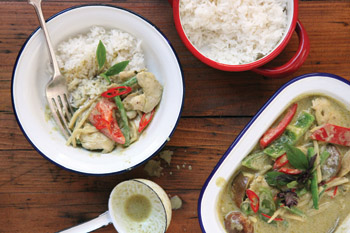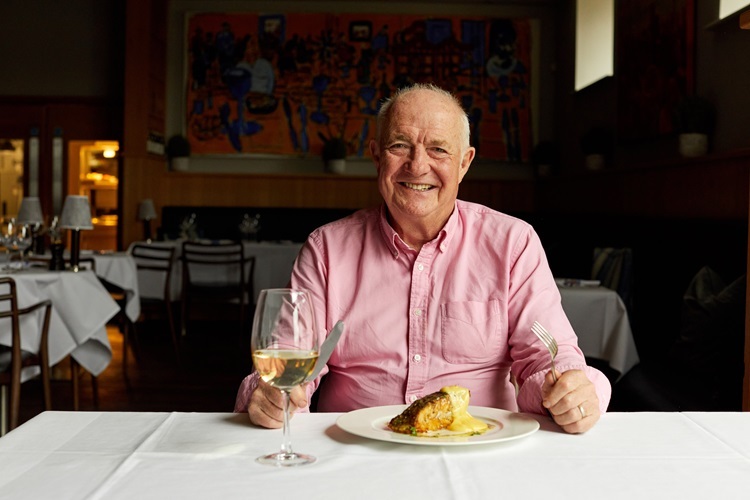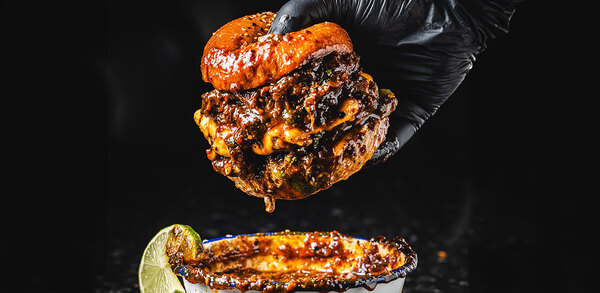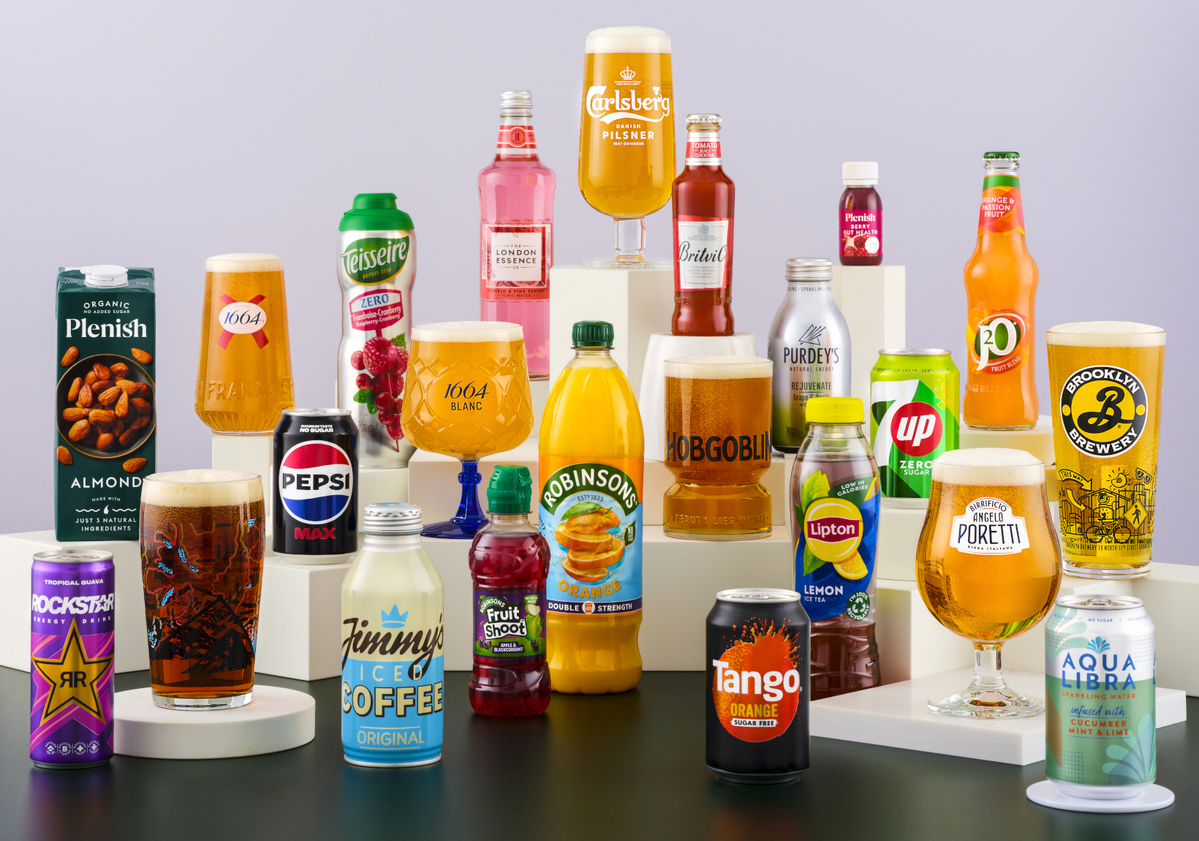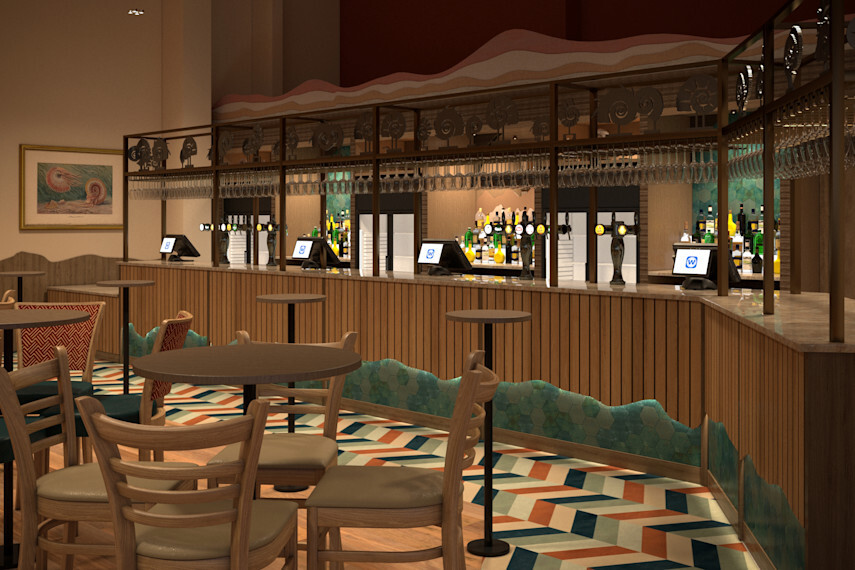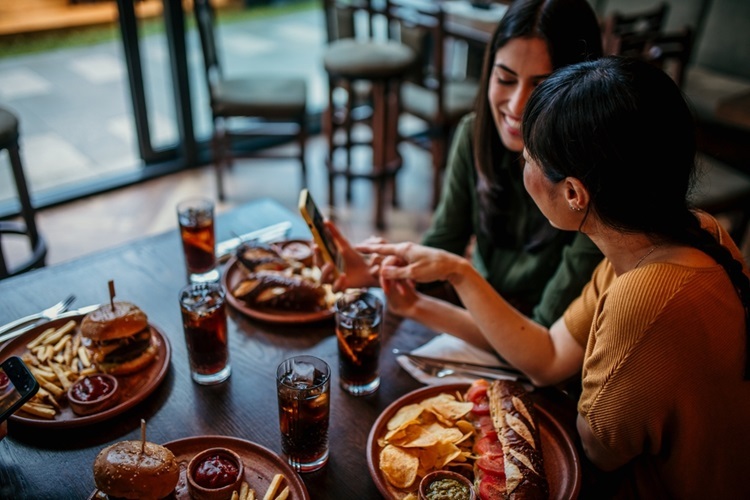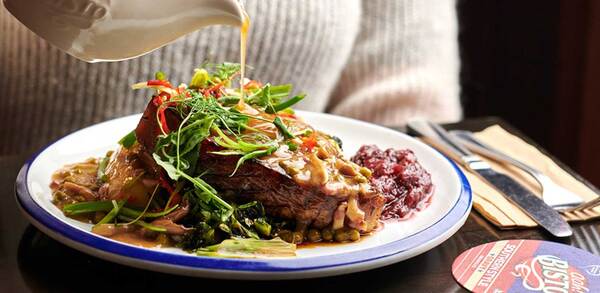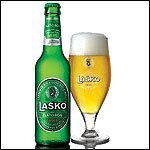Thai lords
Thai cuisine is on the verge of a re-appraisal in the UK, with new restaurants cooking regional dishes that really highlight the depth and diversity of the food. Zeren Wilson reports.
When the UK's first Thai restaurant emerged blinking into the London sunlight in 1967 we were still very much a nation of Thai cuisine ingénues.
Bangkok on Bute Street in South Kensington started our Thai education and we slowly became seduced. The number of Thai restaurants rose from four in the 1970s to nearly 300 in less than 25 years. We were becoming familiar with exotic Thai ingredients and soon able to tell our prik nam pla from our pad thai, helped by increasing numbers of British tourists visiting the country after the 1960s.
In 1988 the landlord of the Churchill Arms in London's Notting Hill inadvertently stumbled across a whizz of an idea: to trial the serving of Thai cuisine in the Fuller's pub that he managed. The restaurant has been there ever since and the idea spawned the rash of Thai kitchens in pubs across the UK, and for many British palates provided their first taste of this vibrant cuisine with its broad spectrum of flavours.
Reasons to be cheerful
Thai cuisine and flavours are having something of a ‘moment' in the UK. Statistics supplied by The NPD Group make for upbeat reading for Thai operators. For the year ending November 2013, Thai restaurants made up 0.6% of full service restaurant visits in the UK. Total spend amounted to £122,044,000, while the average individual spend at Thai restaurants was £17.50, which is higher than the £9.56 average individual spend at full service restaurants. Reasons to be cheerful, and certainly encouraging for the smaller operators looking to branch out in the UK.
"There is certainly some resurrection of Thai chains," says Peter Backman of data and insight specialist Horizons. "Thai-themed restaurants threatened to become big a decade ago, when some pub operators launched Thai brands. However, these sank without trace. Giggling Squid is one of the new-style Thai chains offering modern Thai food in a fresh, contemporary setting. Busabi Eathai, is another, although both are relatively small at the moment."
Trend analyst Mike Palmer of the Lost In Catering website feels that travel habits and a recently acquired familiarity with Thai flavours is helping to drive the sector.
"Thai is accessible and familiar because of travel patterns. General flavours, particularly curry flavours, have been eaten here for a long time and these dishes act as the introduction to Thai cuisine." However, he identifies a very clear strategy for pushing things on to the next level in this maturing market:
"As with many heavily stereotyped national cuisines, the way through is regionalisation because it gives permission to bypass the
obvious. And it has started. In the US Andy Ricker's Pok Pok [chain of Thai restaurants] woke everyone up."
Regional flavours
One of the operators leading the charge, with its offering of ‘Thai tapas' is the Koh Group, which now operates four Koh Thai Tapas sites in the south of England, with co-owner Andy Lennox agreeing that most customers are pretty savvy.
He says: "Education is key with any business and all our staff are taught to be able to describe the flavours of the food and guide each individual's palate. However, more and more people are travelling to Thailand and coming back to the UK in search of the flavours they found there. That is what we aim to create with our authentic Thai food and experience of Thailand in the UK."
Alan Yauâs Busaba Eathai was perhaps ahead of the game when it opened its first outlet in 1999, a forerunner to the recent resurgence in modern styled concepts.
âWe were definitely out of the ordinary in the London landscape,â says Busabaâs business development manager, Leila Botham. âWe saw a real change in the market about four years ago, although Busaba actually embraces a more traditional Thai approach to dining. Typical Thai dining is rarely broken into the western idea of courses. In Thailand dishes are served simultaneously so that flavours, textures and aromas complement one another.â
There are, however, issues that may hinder further UK expansion for some. âThe biggest threat to UK-wide expansion is the ever-tightening immigration controls. At least four Thai chefs are needed for a new Busaba branch,â says Botham.
Chaophraya is a group that has successfully managed to achieve a wide geographical spread across the UK, including sites in Birmingham, Glasgow, Edinburgh, Liverpool, Leeds and Manchester, with London plans in the pipeline, and when it comes to margins in comparison with other cuisines, there are challenges here also.
âMost Thai dishes require specialist cooking skills and genuine knowledge of Thai cuisine. Our dishes tend to require a lot of preparation,â explains Ian Leigh, a director of Chaophrayaâs parent company Thai Leisure Group.
This is echoed by one of the smaller players, Janetira, in Londonâs Soho with a single site, but with ambitions to open another.
âThai food is quite complex, with many ingredients we need to import. So in terms of margins itâs a disadvantage for us, and Thai food has more processes involved,â says co-owner Pawat Ruengathitskun.
Chef Jane Alty owns the Begging Bowl in Brixton, a restaurant that has done much to challenge preconceptions about Thai restaurants with her interpretation of Thai street food. âOur biggest expense is our Asian fruit and vegetables,â she says. âWith the sheer number of ingredients in each dish, when you prepare your own curry pastes, and when you are cracking a sack of coconuts to make cream every day it adds up very quickly. Since banana blossoms, chive flowers, yam bean, lotus stem and white turmeric are some of the many unusual ingredients that we use and are not currently grown in the UK, it is sometimes a struggle to get a decent GP.â
Creating a scaleable brand
So what does it take to make a scaleable brand out of a cuisine that for so long didnât have one in this country?
âA cultural intelligence is absolutely vital, with the ability to appreciate and respect Thai culture while implementing a strong business practiceâ, says Alex Moore, co-owner of Rosaâs, now with four London sites. âWe use authentic recipes with fresh ingredients. We donât change it to make it more scaleable and we donât have a central kitchen.â
Chef Andy Oliver, currently cooking at the Begging Bowl, has been garnering praise for his Thai street food events, and is likely to lead the way for a re-energised Thai sector this year when he finds a site for his Som Saa concept.
âReal Thai food is under-represented in this country and people are waking up to that. Cooking and championing regional dishes will, I believe, play a big part in raising peopleâs awareness of the amazing depth and diversity of Thai food.â
Food writer and long-time Thai food obsessive Tom Parker Bowles feels that we are at the beginning of a nascent re-appraisal of Thai food in the UK. âFor too long, a lot of British Thai food has been an over-sweet, deep-fried, second rate parody of its true self,â he says.
He is optimistic too that we are on a journey taking us away from âcloying green chicken curries with their âBounty Barâ sauceâ and âemasculatedâ versions of the real thing.
âThis is one of the most thrilling food cultures in the world,â he enthuses. âThe problem is that it takes a little time to really understand all those chillies and pungent flavours that make the food so damned addictive.â
It feels like a long time ago that David Thompson, an authority on Thai cuisine and culture, opened his trailblazing restaurant Nahm at the Halkin hotel in London in 2001, gaining the first Michelin star for a Thai restaurant in Europe. The restaurant lost its star in 2011 and Thompson returned to Bangkok, citing a lack of availability of ingredients to achieve the standard he wanted to maintain.
Losing a leading light of the Thai restaurant scene may have felt like a body blow at the time, but it feels like the Thai sector is about to hit its groove once more.
THAI FOOD FLAVOUR PROFILE
Thai food is known for balancing three to four fundamental taste senses in each dish or the overall meal: sour, sweet, salty and bitter. Speaking in a 2010 Observer article, Australian chef and Thai food expert David Thompson said: âThai food ainât about simplicity. Itâs about the juggling of disparate elements to create a harmonious finish. Like a complex musical chord itâs got to have a smooth surface but it doesnât matter whatâs happening underneath. Simplicity isnât the dictum here, at all. Some westerners think itâs a jumble of flavours, but to a Thai thatâs important; itâs the complexity they delight in.â
THE BEST KNOWN THAI CHAINS
BUSABA EATHAI
Founded 1999
Founders Alan Yau and Jale Erentok
Style of food Casual Thai
Typical dishes Busaba Thai calamari, tom kha chicken, dolly pad mee
Number of sites 10
Average spend per head £17
GIGGLING SQUID
Founded 2009
Founders Andy and Pranee Laurillard
Style of food High quality rustic Thai with tapas-style lunch service
Typical dishes Moo ping grilled marinated pork, koong chu chi prawns, stuffed baby squid gra pao
Number of sites 10
Average spend per head £25 evening, £12-13 lunch
KOH THAI TAPAS
Founded 2009
Founders Andrew Lennox, James Hampton and Nick Billingham
Style of food Thai tapas
Typical dishes Kohâs special crispy squid, 24-hour ribs, Thai-style steamed mussels
Number of sites 5
Average spend per head £25
CHAOPHRAYA
Founded 2004
Founder Kim Kaewkraikhot
Style of food Authentic Thai
Typical dishes Ruammit satay fondue, Chaophraya duo of fish duck tamarind
Number of sites 10
Average spend per head £12-£34 (depending on brand, location and offer)
ROSAâS
Founded 2008
Founders Saiphin and Alex Moore
Style of food Authentic modern Thai cuisine
Typical dishes Chilli sea bass, pumpkin red curry, black pepper Highland venison
Number of sites 4
Average spend per head £22.50
Â



